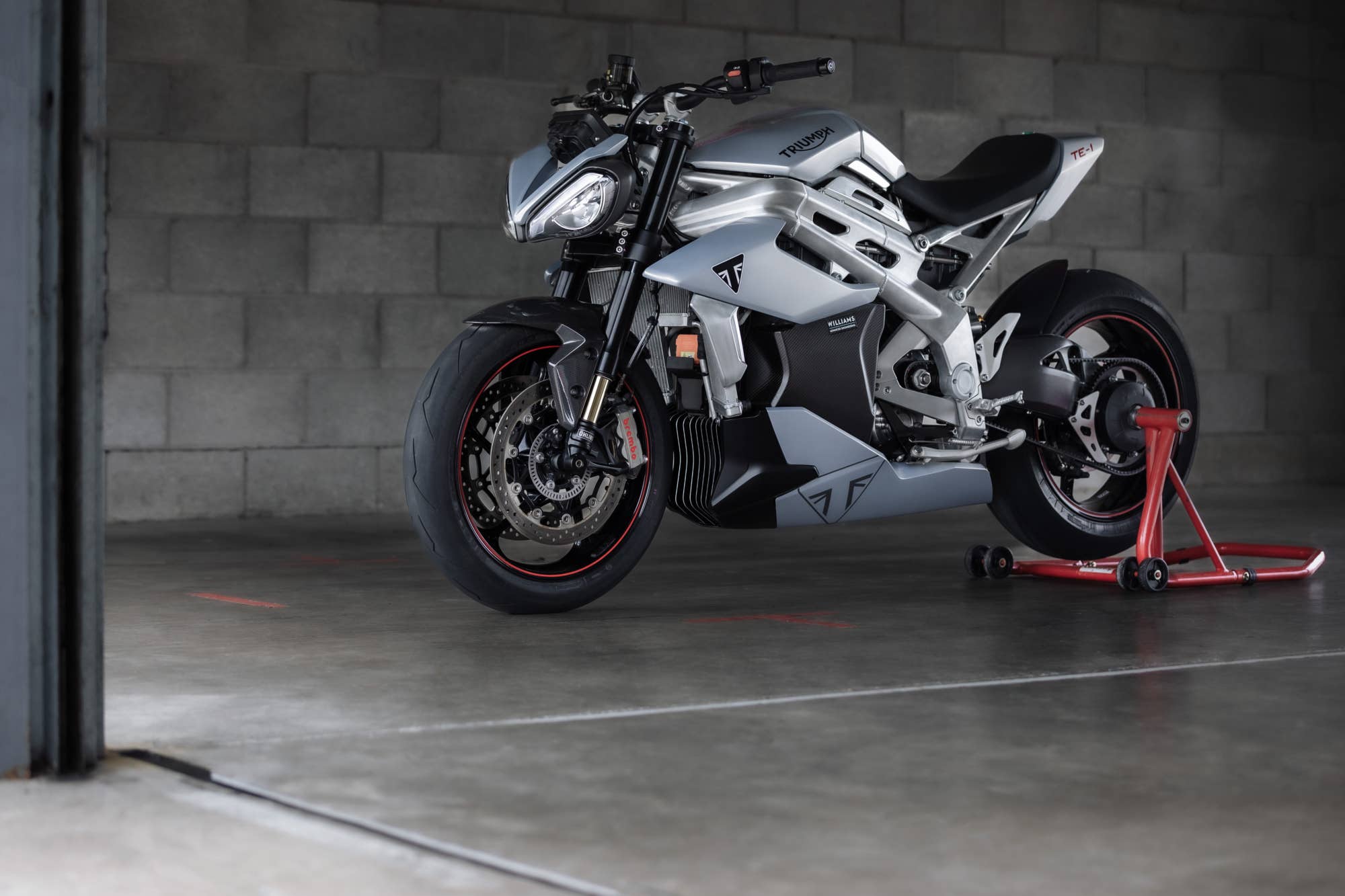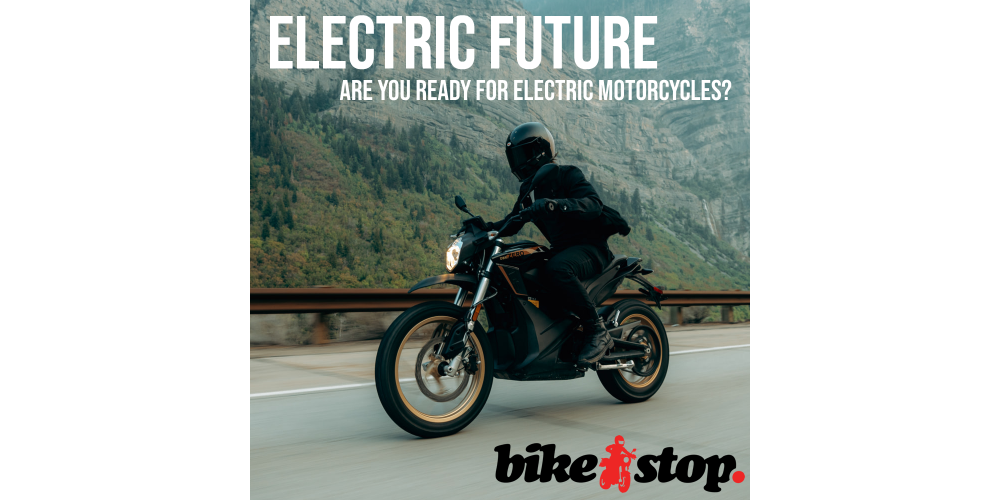Electric bikes are the future of motorcycling. Are you on board?
Do you know what happens in 2035? The death of the internally-combusted motorcycle happens. We have just thirteen years before legislation bans the sale of new ICE-powered motorcycles, and that doesn't seem like a whole lot of time. For many people, a big part of motorcycling is in the sounds, smells and sights. As bikers, I'm sure we all have the ability to smell a 2-stroke bike from four miles away and identify the sound of a Ducati two minutes before we’ve seen it. How will you feel when you no longer have the option of buying a new one?
Despite the doom and gloom, it's important to remember the upcoming legislation will not affect bikes made before the cut-off date. A man from the government is not going to turn up at your house, dismantle your GSX-R, feed it into a crusher and hand you a small blue and white cube. There are no plans to ban ICE-powered machines already in existence. Not at the moment, anyway.


Motorcycles have traditionally lagged behind their four-wheeled cousins when it comes to technology. For example, anti-lock brakes became mandatory for cars in 2004, and it took until 2013 for bikes to follow suit. These days, it’s not unusual to see electric cars whilst you’re out and about, but you're possibly more likely to see a pink unicorn than an electric bike. As things stand now, electric motorcycles represent a tiny percentage of new bike sales, but that figure is increasing each year.
What are the manufacturers doing about it?
As said, thirteen years isn't a huge amount of time. There haven’t really been any big, bold statements from the major manufacturers regarding electric bikes. Triumph has recently completed testing its TE-1 prototype (pictured above), but that’s unlikely to see production in its current form. Honda has said its bikes will be all-electric by 2040, and there are plans for a couple of smaller electric bikes and scooters in the next couple of years. Kawasaki is promising full electrification five years sooner than Honda and has been tinkering with a hybrid powertrain.
Yamaha is being tight-lipped about the subject, although their E01 electric scooter should hit the market this year and offers a suitable electric alternative to their popular NMAX 125. BMW is in a similar position to Yamaha, promising a handful of electric scooters and smaller bikes over the next few years.
The list goes on, and the pattern remains similar. Manufacturers are focusing their efforts on scooters and smaller bikes. I guess it makes sense as the physically smaller bikes make up a larger proportion of the market. It also allows time for incremental steps in technology to allow better packaging for larger bikes.
Big Bikes
So what happens with big bikes? Will we see an electric Fireblade or R1? Probably not for a while. Triumph has, very recently, completed prototype testing of its TE-1 electric development project. The TE-1 is an all-electric bike, delivering 130kW (175bhp) and 109Nm (80lbft) of torque in a package weighing in at just 220kg. Ok, the weight may seem high for a modern sports bike but it's not that far removed from a fully wet ICE-equivalent with a fuel tank full of fuel. It’s playing in the same ballpark, at least.
The TE-1 claims to reach 60mph from a standing start in 3.6 seconds and break through the 100mph barrier in just 6.2 seconds. It’ll even manage to do 100 miles before it needs charging, at which point a 20-minute charge should fill up 80% of the battery. That’s not too shabby. Sadly, there are no plans to make a production version of the TE-1, but it offers insight into what the British brand may produce in the future.


If you want to dabble in electric bikes today, there are already a handful of options out there. If you have £29,000 knocking about, Harley Davidson will sell you their all-electric LiveWire. I bet you’re already thinking of what bike you’d much rather have for that money, aren’t you? Me too. Zero Motorcycles are a little more down-to-earth with their pricing. Zero offers bikes starting at £12,440 for the FX 7.2 and going up to £22,240 for the SR/S Premium. Depending on which model you go for, you’ll get a range of between 70 and 130 miles in something which, shock and horror, looks like a regular motorcycle.
It would appear the market will be well catered for as the next handful of years roll by, but are you on board with how things are heading?
The difficult choice
Electric motorcycles have a few solid positives; immense torque, few moving parts, and simple maintenance. Unfortunately, they also have more than a few negatives; weight, charging times, range and price. I was going to include ‘noise’ in the negatives, but I’m on the fence on this one. I’ve personally never been that bothered about the sound a bike makes. I haven’t changed from a standard exhaust on my last seven bikes, and my neighbours seem happy about that. However, I know many of you out there love the noise of a motor amplified through one of Mr Akrapovic’s finest, and I suspect I’m never going to sell the idea of ‘nice sounding’ electric bikes to you, so let’s move on.
Weight is a big one. As we’ve seen from Triumph’s efforts, they can get close, but every kilo counts. A combination of improving technologies with batteries and materials should help narrow the gap over the next decade. For the foreseeable future, electric bikes may never be as light as bikes today, but we should see progress towards something 'reasonable'.
Charging times are unlikely ever to be as quick as pumping a few litres of unleaded into your tank. It would be nice to believe that one day we can get it down to about five minutes and for a reasonable price. As for range, I used to ride a Ducati Streetfighter V4 S. I used to fantasise about being able to travel 100 miles on a single tank. If electric bikes can get anywhere near that – which they do already – I’m in! However, my current Africa Twin can easily manage over 300 miles from a full tank, and it's going to take electric bikes a while to catch up to that without weighing the same as a small train.


Prices for electric bikes at the moment are somewhere between unappealing and horrific. Having said that, it’s important to remember they’re new products in new markets. Early adopters will always suffer premium pricing, but we'll hopefully see prices normalise over time.
Should you?
As things stand now, I think electric motorbikes will be a hard sell to seasoned, gruff bikers. The bikes have flaws and limitations, but range, charging times, and weight improvements are almost certainly guaranteed. The most important question is whether or not an electric bike can offer you the same amount of fun and engagement as whatever you have in your garage at the moment. I believe they can. It may not be the same kind of entertainment you currently enjoy, but it certainly has promise. Go in with an open mind and a bulging wallet, and you may surprise yourself.
If, after trying an electric motorbike, you find they’re really not for you, at least you’ll still have a few hundred thousand used bikes to choose from for a long time to come.






